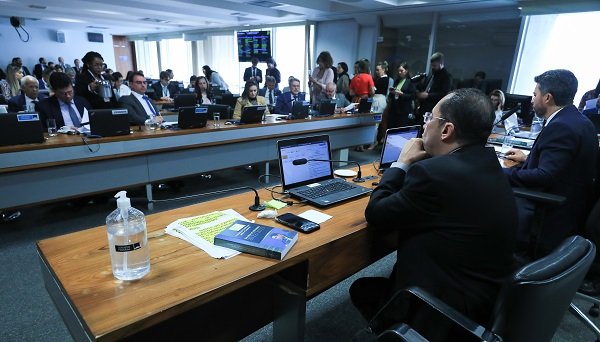The Constitution and Justice Commission (CCJ) approved on Wednesday (13/03) the proposed amendment to the Constitution that includes the criminalization of drug possession, in any quantity, in the Amendment to the Constitution nº45 (PEC 45/2023). The project is a response to the action being judged in the Federal Supreme Court (STF) which deals with the decriminalization of possession of small amounts of marijuana. For supporters of the PEC, society will suffer consequences for public health and safety if the STF considers part of the Drug Law (Law 11,343, of 2006), which criminalizes the possession and possession of drugs for personal consumption, unconstitutional.
This Content Is Only For Subscribers
To unlock this content, subscribe to INTERLIRA Reports.
Discussion in the STF
Of the eleven ministers of the STF, five ministers have already voted for the unconstitutionality of classifying only the possession of marijuana for personal use as a crime. Three ministers voted to keep the current rule of the Drug Law valid. The quantity of marijuana that will determine whether it is a case of trafficking or personal use is also discussed by the members of the Court, who provisionally propose values between 10 and 60 grams.
Reaction from the Legislative Branch
The vote takes place during an impasse between the National Congress and the STF related to the issue. According to analysts and statements from parliamentarians themselves, the vote is a reaction to what is considered an invasion of the STF’s jurisdiction.
Current state
There is still no definition of the scenario. In the STF, the trial has not yet been completed and, in Congress, in addition to the Senate stage, the proposal needs to go through votes in the Chamber and be promulgated.
The trial at the STF does not yet have a date to be resumed, because the 90-day deadline for the analysis request by Minister Dias Toffoli is running out. In Congress, the PEC also needs to go through two rounds of voting in the Senate plenary.
Voting in April
After a meeting of leaders this Thursday (21/3), Senator Efraim Filho (União) stated that the vote on the Proposed Amendment to the Constitution (PEC) on Drugs could be postponed until the second week of April when the agenda gains space until then the deputies will be involved in supporting allies in party negotiations for this year’s municipal elections.
Public Security and Prisons
Analysts highlight that the issue affects public security, prison conditions, the power of factions, and the ability of these groups to recruit new members into the prison system. The 2006 law being discussed by the STF is pointed out by experts as a factor that accelerated the growth of the country’s prison population by stimulating arrests for drug trafficking, in many cases, based only on a small number of drugs and the context reported by the police.
In 2005, there were 296,919 people incarcerated in the country. In 2019, there were 773,151 inmates, an increase of 160%. In 2022, the National Council of Justice (CNJ) estimates that the total number of people arrested is now around 832,295. However, there are only 596,442 spaces in the system.
The lack of space and other precarious prison conditions are listed as factors that help prisoners seek protection from organized crime factions.
Mossoró
Pressured by an unprecedented crisis in the penitentiary system, the Minister of Justice and Public Security, Ricardo Lewandowski, presented on Monday’s ministerial meeting (18/03) 29 actions that his department has already adopted since the first escape in the federal prison system, created in 2006.
The recent escape of two Comando Vermelho (CV) inmates from the maximum-security federal prison in Mossoró, Rio Grande do Norte, placed the Brazilian prison system under the spotlight. The federal system was created in 2006 to maintain behind bars extremely dangerous criminals, normally connected to organized crime. Among the factors that motivated this move were the regular prison overpopulation, lack of resources to maintain high security in the normal system, geographical proximity to the criminal’s network, and more.
Among the actions already taken by Lewandowski is the initiation of the process to build a wall in the Mossoró prison and the beginning of construction of another, in the Federal Penitentiary of Porto Velho. A change in protocols was also reported, with the implementation of daily searches in all cells, sun yards, and parlors of the five federal units, with the preparation of weekly reports for the management of each one. In addition, security equipment was purchased, such as new cameras and structures were reinforced, including the lamps used by Deibson and Rogério in the escape.
Source: G1 [1], [2], [3], [4]; Estadão; Senado Federal [1], [2].




